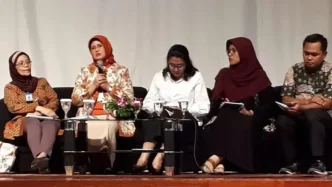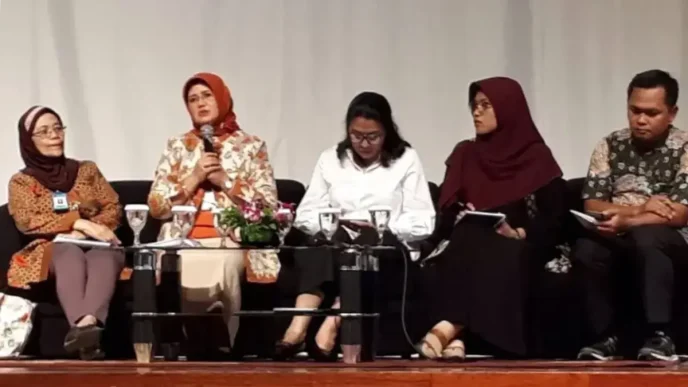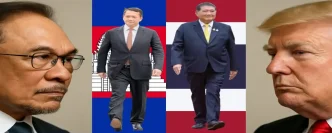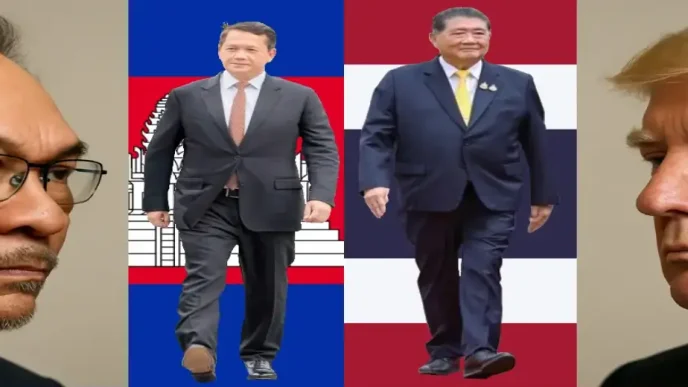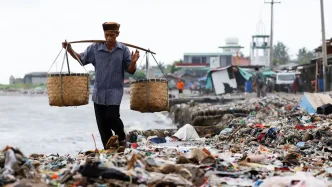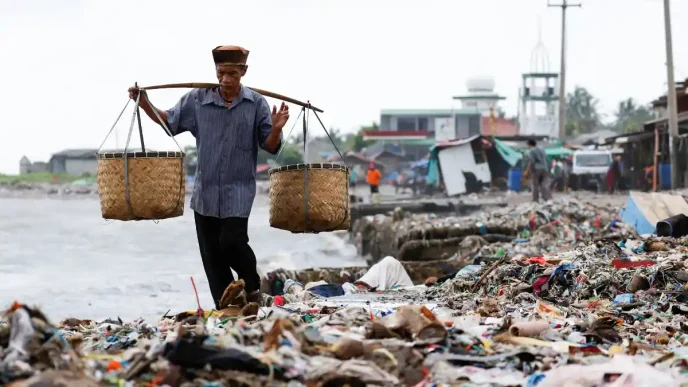Jakarta faces a pivotal moment as it scrambles to secure trade agreements with Europe and Canada, aiming to shield its economy from looming US tariffs. With global trade tensions escalating, Indonesia is racing against time to diversify its economic partnerships and protect key industries. The stakes are high: failure to finalize these deals could expose the nation to significant financial fallout, while success might offer a crucial buffer against international pressures.
Rush for Trade Agreements Amid US Tariff Threats
Indonesia is intensifying efforts to complete trade negotiations with the European Union and Canada, driven by fears of punitive tariffs from the United States. Recent reports indicate that Jakarta is prioritizing these deals as a strategic hedge, with government officials working to finalize agreements before potential US policy shifts take effect. The urgency stems from concerns over proposed tariffs that could target key Indonesian exports, including textiles, electronics, and palm oil, which collectively contribute billions to the national economy.
The potential impact of US tariffs cannot be understated. Indonesia’s trade ministry has warned that such measures could disrupt supply chains and reduce export revenues, particularly in sectors already grappling with global competition. To counter this, the government is pushing for comprehensive economic partnership agreements (CEPAs) with both the EU and Canada. These deals aim to secure preferential market access and reduce trade barriers, offering a lifeline to industries vulnerable to US policy changes.
Negotiations with the EU, which have been ongoing for several years, are now at a critical juncture. Sticking points such as environmental standards and labor rights have delayed progress, but recent discussions suggest a renewed commitment to resolution. Similarly, talks with Canada focus on sectors like agriculture and mining, where Indonesia seeks to expand its export footprint. While exact timelines remain unclear, officials are optimistic that agreements could be signed within the next year, providing a much-needed economic cushion.
The Broader Context of Unfair Trade Practices
Beyond immediate tariff threats, Indonesia is grappling with broader challenges in the global trade landscape. Analysts point to a growing trend of unfair trade practices, where larger economies leverage protectionist policies to the detriment of developing nations. For Indonesia, this manifests in restricted access to key markets and fluctuating commodity prices, both of which undermine economic stability.
Palm oil, a cornerstone of Indonesia’s export economy, exemplifies these struggles. The EU’s stringent regulations on deforestation-linked products have sparked tensions, with Indonesian officials arguing that such policies unfairly target their industry. While the government has made strides in promoting sustainable practices, the perception of unfair treatment persists, complicating trade negotiations. This dynamic underscores the delicate balance Jakarta must strike between meeting international standards and defending national interests.
Moreover, the rise of digital trade barriers adds another layer of complexity. As e-commerce grows, Indonesia faces pressure to align with global data protection and taxation frameworks, often designed with little input from emerging economies. Without robust trade agreements, the country risks being sidelined in the digital economy, further exacerbating economic disparities.
Environmental and Cultural Stakes in the Balance
Indonesia’s economic challenges are not limited to trade policy. The nation also faces domestic pressures that intersect with its international ambitions. Lake Toba, a UNESCO Global Geopark in North Sumatra, is at risk of losing its prestigious status due to environmental degradation and inadequate management. This potential loss symbolizes broader governance issues that could undermine Indonesia’s global standing, including its ability to negotiate trade deals on equal footing.
Lake Toba’s plight reflects a pattern of environmental neglect, with pollution and unchecked development threatening its unique ecosystem. Local communities, who rely on the lake for tourism and fishing, are caught in the crossfire, facing economic hardship as visitor numbers decline. The government has pledged to address these issues, but progress remains slow, raising questions about its capacity to balance economic growth with sustainability—a key concern for trade partners like the EU.
Similarly, social challenges such as violence against children highlight systemic gaps in state-provided care. Reports of widespread abuse in schools and communities have drawn international attention, prompting calls for reform. While not directly tied to trade, these issues shape perceptions of Indonesia’s stability and governance, factors that influence foreign investment and economic partnerships. Addressing such domestic crises is essential for Jakarta to project confidence on the global stage.
Economic Analysis: The Cost of Inaction
The financial implications of failing to secure trade deals are stark. Indonesia’s economy, heavily reliant on exports, could face a significant downturn if US tariffs are imposed without alternative markets in place. According to recent estimates from local economic bodies, a 10% tariff on key exports could result in losses of approximately 3.5 trillion Indonesian Rupiah (~US$220 million) annually. This figure does not account for secondary effects, such as job losses or reduced foreign investment, which could amplify the damage.
Conversely, successful agreements with the EU and Canada could unlock new opportunities. The EU, as one of the world’s largest markets, offers potential for increased exports of manufactured goods and agricultural products. Canada, while smaller, provides access to North American supply chains and high-demand sectors like nickel, critical for the global transition to renewable energy. Together, these partnerships could offset a significant portion of losses from US tariffs, though they are not a complete solution.
Yet, the road to these agreements is fraught with challenges. Indonesia must navigate complex geopolitical dynamics, including Europe’s focus on sustainability and Canada’s emphasis on labor standards. Meeting these demands requires domestic reforms, from strengthening environmental protections to improving worker rights—initiatives that demand time and resources. The question remains whether Jakarta can enact these changes swiftly enough to secure deals before external pressures mount.
Looking Beyond Trade: A Holistic Strategy
While trade agreements are a critical lifeline, Indonesia’s long-term economic resilience hinges on broader strategies. Diversifying export markets is only one piece of the puzzle; the country must also invest in domestic industries to reduce reliance on volatile global trade. Initiatives to boost small and medium enterprises (SMEs), which form the backbone of the economy, could provide stability amid international uncertainty. Similarly, enhancing digital infrastructure would position Indonesia to capitalize on the e-commerce boom, creating new revenue streams.
Education and social welfare reforms are equally vital. Addressing issues like child violence and environmental degradation not only improves quality of life but also strengthens Indonesia’s image as a reliable partner. Foreign investors and trade negotiators often look to governance indicators as proxies for economic risk; thus, tackling these domestic challenges could yield indirect economic benefits.
At the same time, Indonesia must advocate for fairer global trade rules. By aligning with other developing nations, Jakarta can push for policies that level the playing field, countering the protectionist tendencies of larger economies. Regional cooperation, particularly through frameworks like ASEAN, offers a platform to amplify this voice, ensuring that Indonesia’s concerns are heard in international forums.
The Path Ahead: Uncertainty and Opportunity
As Indonesia navigates this complex economic landscape, the interplay between trade policy, environmental stewardship, and social reform will shape its future. Securing deals with Europe and Canada represents a critical step, but it is not a panacea. The government must act decisively to address domestic challenges while advocating for equitable treatment in global markets.
The coming months will test Jakarta’s ability to balance these competing priorities. With US tariffs looming and international scrutiny intensifying, the window for action is narrowing. Whether Indonesia can seize this moment to redefine its economic trajectory remains an open question, one that will reverberate across the region and beyond.







